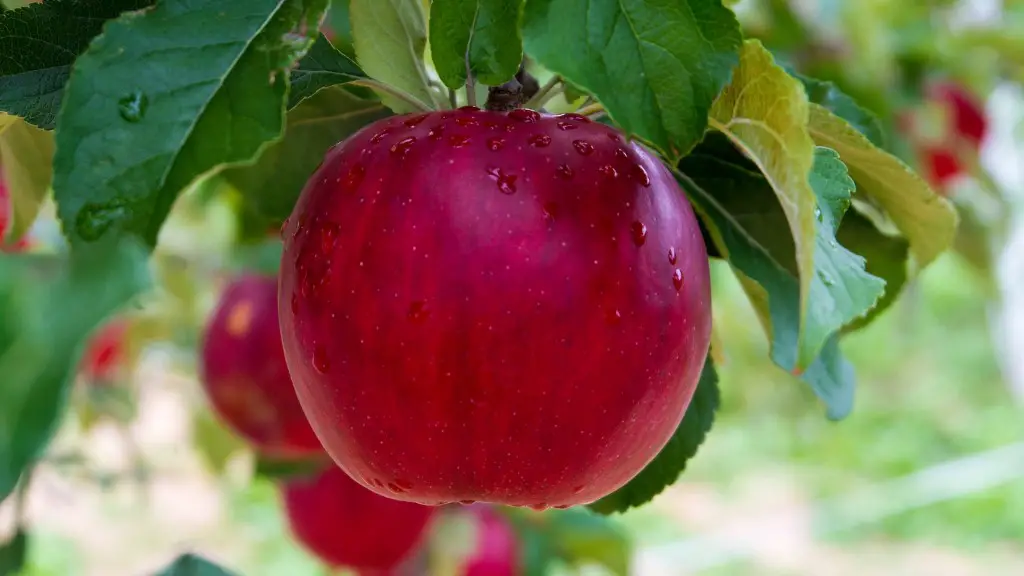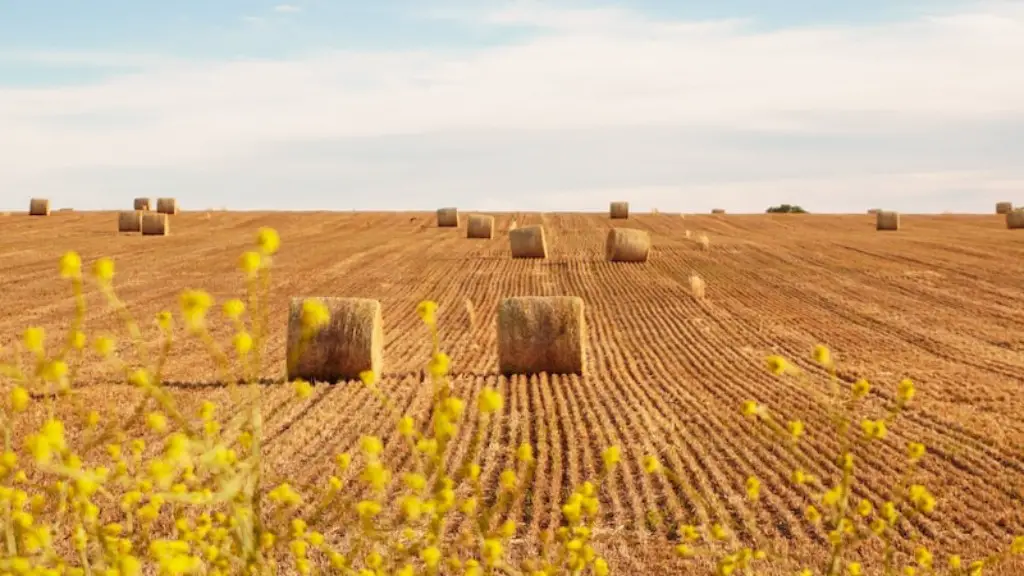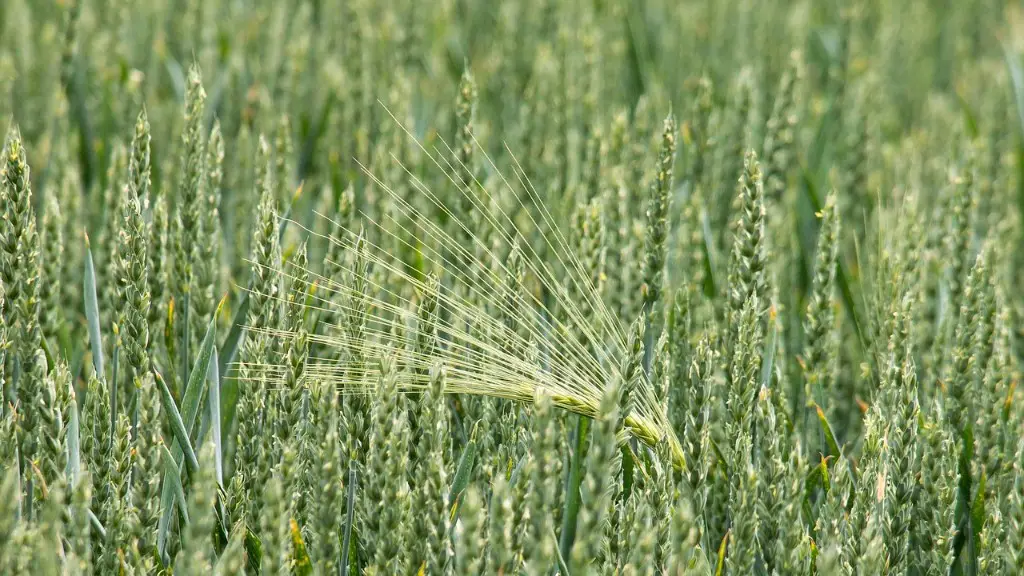Agriculture is a major contributing factor to deforestation, as it affects the environment negatively in several ways. Foremost, the increase in demand for ingredients or food items leads to the expansion of land and cultivation. This results in the destruction of vegetation, thus causing the depletion of biodiversity. Additionally, the use of chemical inputs such as fertilizers, insecticides, and other hazardous substances in farms often destroys the soil, resulting in a decrease in its agricultural fertility. Furthermore, clearing of agricultural land also affects the micro-ecosystems in the area and reduces the water resources. In short, it can be said that agricultural activities can have a profound effect on the environment.
Effects of Agriculture on Deforestation
Deforestation as a result of agricultural activities can be seen in several ways. Firstly, modern farming methods such as various monocultures and deforestation for the expansion of infrastructure often lead to the destruction of natural habitats, making it difficult for the wildlife to survive. This has a direct and indirect effect on the local population, as the destruction of the biodiversity often affects their basic needs. Furthermore, land degradation and desertification are also caused due to agricultural activities, leading to a decrease in the crop yield and quality.
In addition, agricultural activities often lead to specific types of pollution, as the use of different industrial, chemical and effluent inputs contaminates the soil and water resources. This significantly affects the surrounding environment, as the air, water, and land get contaminated, thus leading to an increase in the health problems faced by the local population. In extreme cases, the growth of toxic algae, dead zones and the destruction of food chains can be observed. Thus, the negative impacts of agricultural activities can not be underestimated.
Impact on Climate Change
The rapid deforestation due to agricultural activities can also cause various climate changing effects. For instance, with an increase in the cultivation of crops, the process of carbon sequestration is disrupted. This leads to an increase in the atmospheric carbon dioxide levels, thus exacerbating the greenhouse effect. Moreover, the destruction of forests and biodiversity also affects the natural process of carbon dioxide absorption, thus resulting in an overall increase in the global temperature. In conclusion, the global climate is drastically affected by agricultural activities.
Regulatory Measures
In order to tackle the issue of deforestation caused by agricultural activities, many regulatory measures have been set in place by governments. These measures include restrictions on the use of pesticides and fertilizers, investments in alternative farming methods and sustainable land management practices. Moreover, the governments also set up protected areas and enforce environmental regulations to conserve the biodiversity and forests in such areas. Furthermore, the scarcity of natural resources has also been addressed by governments through various incentives and subsidies, so that the farmers can benefit from them and reduce the deforestation.
Agroforestry as a Solution
In order to protect the environment from deforestation due to agricultural activities, agroforestry can be employed. Agroforestry is the practice of integrating trees and shrubs into crop and animal systems, in order to improve the overall yield of agricultural crops. It also helps in improving the soil fertility, biodiversity and water resources. In addition, the practice of agroforestry also assists in conserving the carbon dioxide and countering the effects of climate change. Hence, agroforestry can be an effective solution to address the issue of agricultural-induced deforestation.
Education to Reduce Deforestation
Moreover, education can also be utilized to reduce the impacts of deforestation due to agricultural practices. It is essential to educate the farmers or local population about the effects of their activities on the environment, in order to instill the importance of sustainable farming practices. Additionally, the governments should also set up programs and awareness campaigns, in order to educate the people about the effects of deforestation, and the need to protect the environment. Lastly, the governments should also make efforts to ensure that the farmers have access to the necessary resources and knowledge, so that they can practice sustainable farming techniques.
Environmental Impact of Agriculture
In addition, agricultural activities can have a much more profound effect on the environment than just deforestation. The use of machinery and machinery-related activities, such as overgrazing and soil erosion can lead to an increase in air and water pollution. Moreover, the use of fertilizers, pesticides and other farm inputs, can have a serious impact on the quality of the soil and water resources. In extreme cases, land degradation, desertification, and water contamination can be observed. Thus, it is essential to take regulatory measures, as well as educate the farmers, in order to reduce the environmental impacts of agricultural activities.
Land Use Change
Furthermore, the expansion of land for agriculture can often lead to a change in the land use, which can have a significant impact on the environment and biodiversity. Specifically, the land use patterns can be altered, thus leading to the destruction of natural vegetation and causing the displacement of certain species. In addition, the migration of species and their habitats also results in a decrease in the genetic diversity of an area, thus affecting the food chain and the environment as a whole. Thus, the transformation of land use due to agricultural practices is an important environmental concern.
Supportive Policies
Additionally, many governments have initiated supportive policies and initiatives to reduce the negative impact of deforestation due to agriculture. These policies include providing financial grants and subsidies, setting up incentives for sustainable agricultural practices, and offering agricultural training programs to farmers. Moreover, the governments have also implemented laws and regulations, in order to reduce the use of chemicals, fertilizers and pesticides in agricultural practices. These steps taken by governments can play an essential role in upholding the environment and biodiversity, by reducing the impacts of agricultural-induced deforestation.


